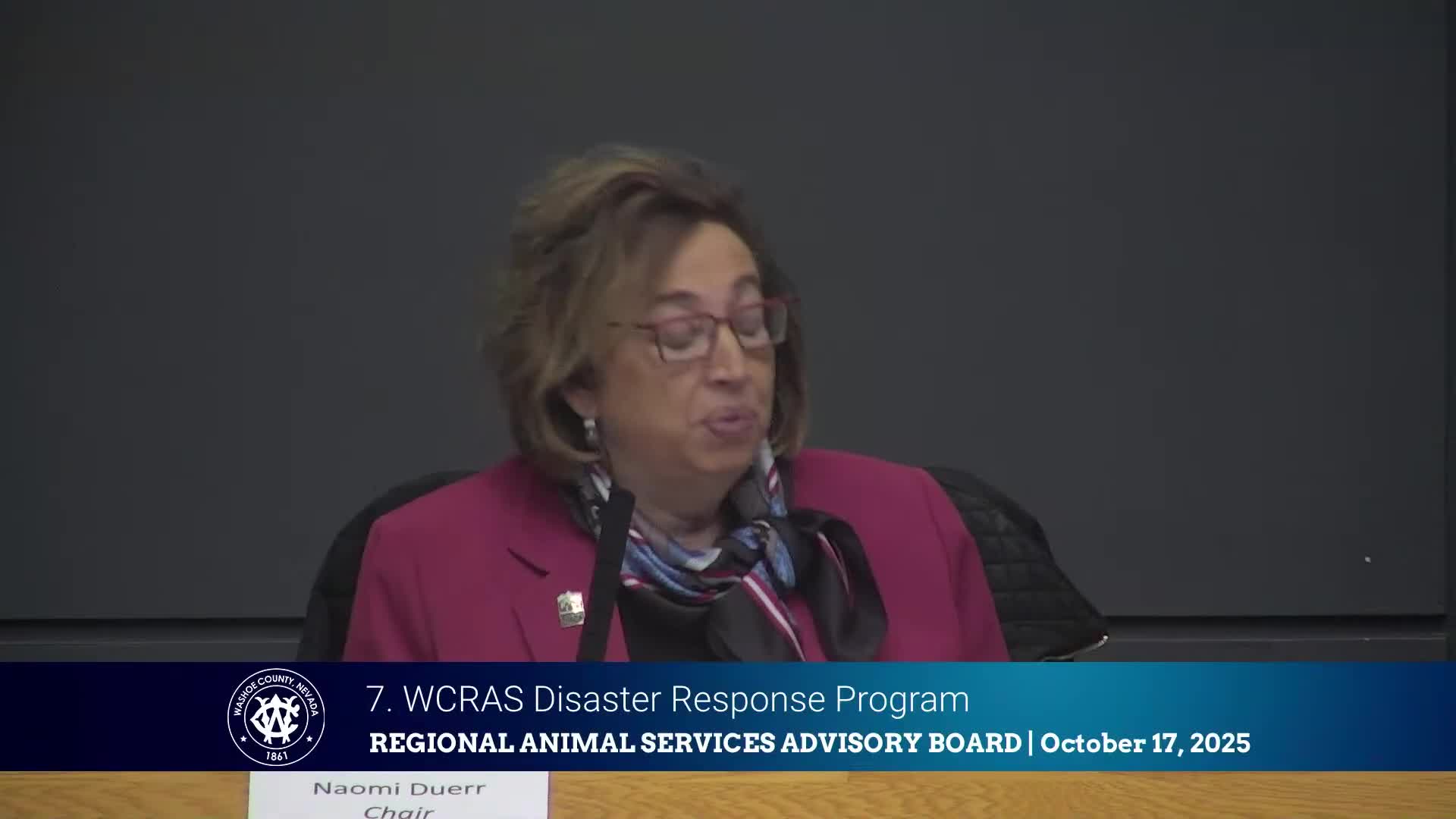2025 animal‑welfare bills pass Nevada Legislature; Reba’s Law tightens cruelty penalties
Get AI-powered insights, summaries, and transcripts
Subscribe
Summary
Advocates told the advisory board that five 2025 animal‑welfare bills became law, including expanded protections for tenants with pets, a fee‑waiver adoption program for veterans and first responders at public shelters, and AB381 (Reba’s Law), which toughens cruelty penalties.
Nevada state and national animal‑welfare advocates briefed the board on legislation passed during the 2025 session that affects animal control, sheltering and cruelty enforcement.
Rebecca Gough, Nevada state director for Humane World for Animals, summarized five principal bills that were signed into law. Highlights:
• SB166: expands prior breed/insurance restrictions and requires certain subsidized housing that receives state/local/federal funding to allow tenants at least one pet, helping narrow housing barriers tied to breed insurance denials.
• SB325 ("Pets for Vets"): requires city‑ or county‑run shelters to create programs allowing veterans, law‑enforcement officers and first responders to adopt shelter animals for free (animals must be at least six months and available seven days), intended to remove cost barriers for those groups.
• AB136: requires businesses offering paid human‑animal interactions (petting zoos, interactive exhibits) to post a conspicuous sign (8½×11) showing the local animal control phone number and instructions to report suspected animal suffering or cruelty.
• AB418: directs counties and cities to adopt ordinances requiring periodic training for businesses that provide pet‑service operations (grooming, retail, boarding), with exemptions for veterinarians, shelters and certain nonprofits; local jurisdictions will determine implementation details.
• AB381 (Reba’s Law): tightened animal cruelty statutes after a high‑profile case. The bill expands seizure/disposition rules, removes auction sales of seized animals, raises penalties (willful cruelty causing death can be a category B felony with enhanced sentences), requires psychological evaluations or rehabilitation for juvenile and adult offenders in some cases, and extends immunity conditions for persons who remove animals from locked vehicles to prevent imminent harm when following protocols.
Gough said the bills vary in implementation steps for counties and municipalities. Board members asked about timelines and whether nonprofit partners such as the Nevada Humane Society would be covered by SB325; staff said nonprofit adoption partners are generally exempt from the mandate and will need to review funding and contract details to determine applicability.
Why it matters: the statutes change local obligations for shelter programs, enforcement and public information; several provisions will require county and city code updates or administrative procedures to comply.
